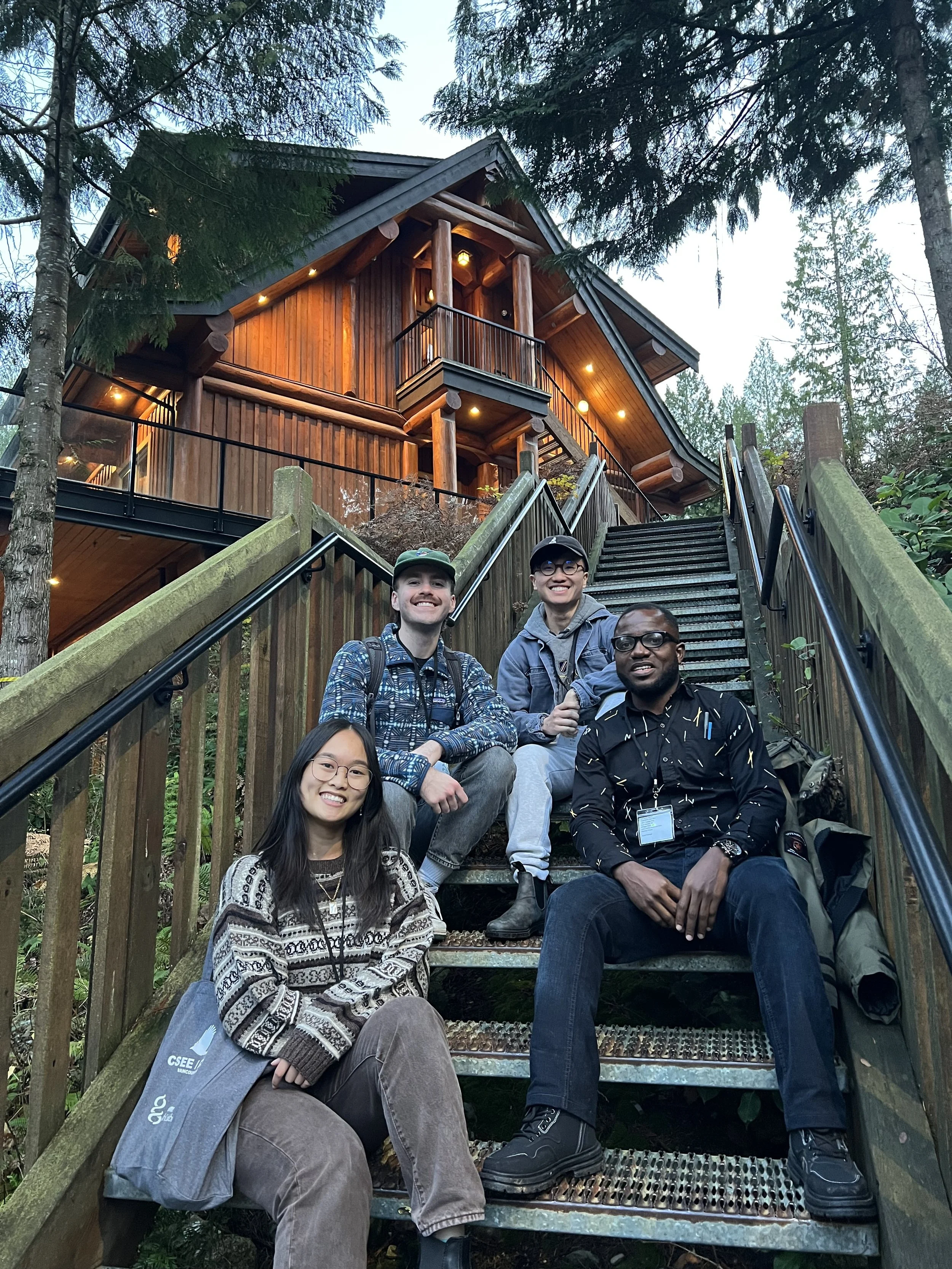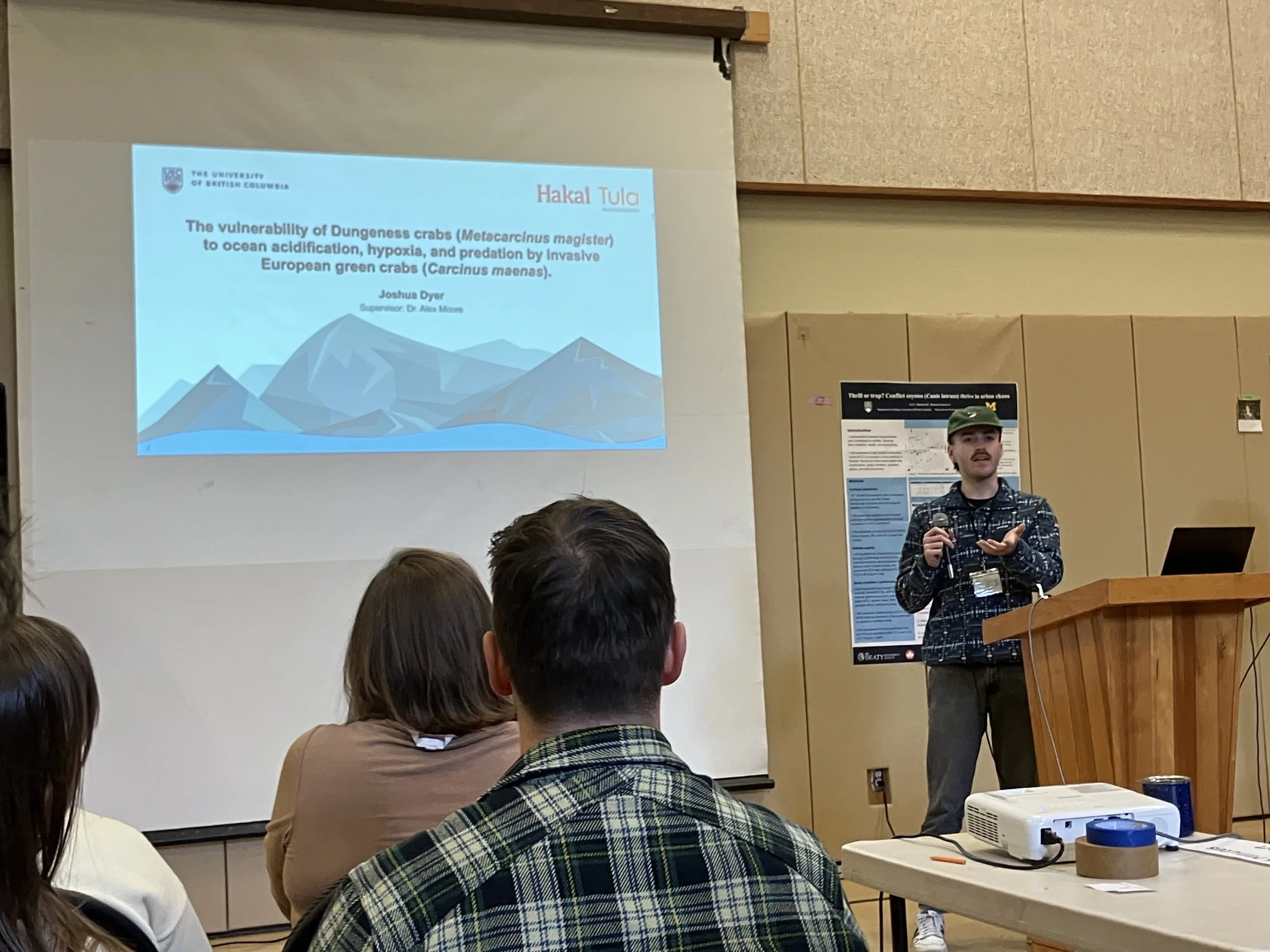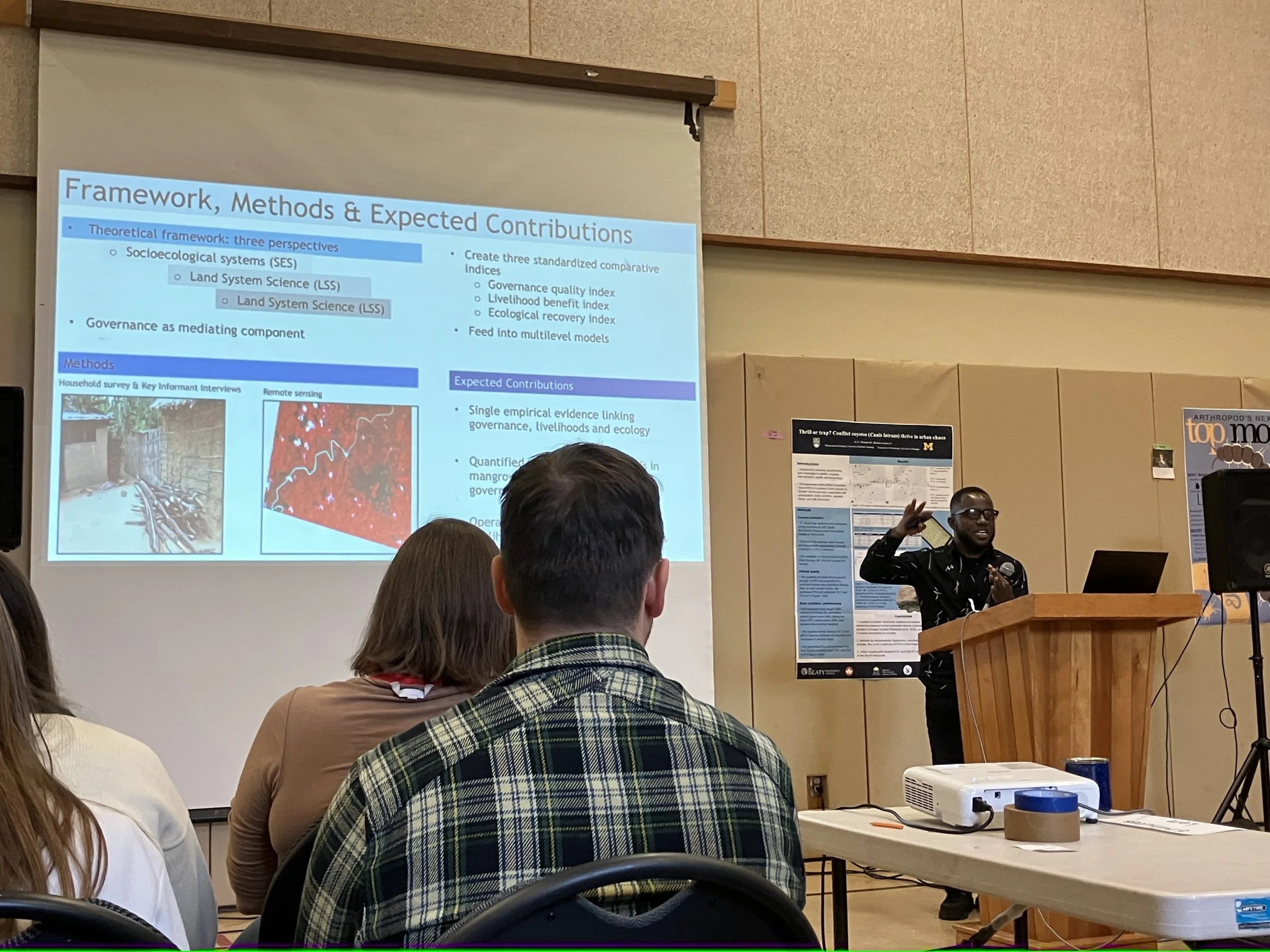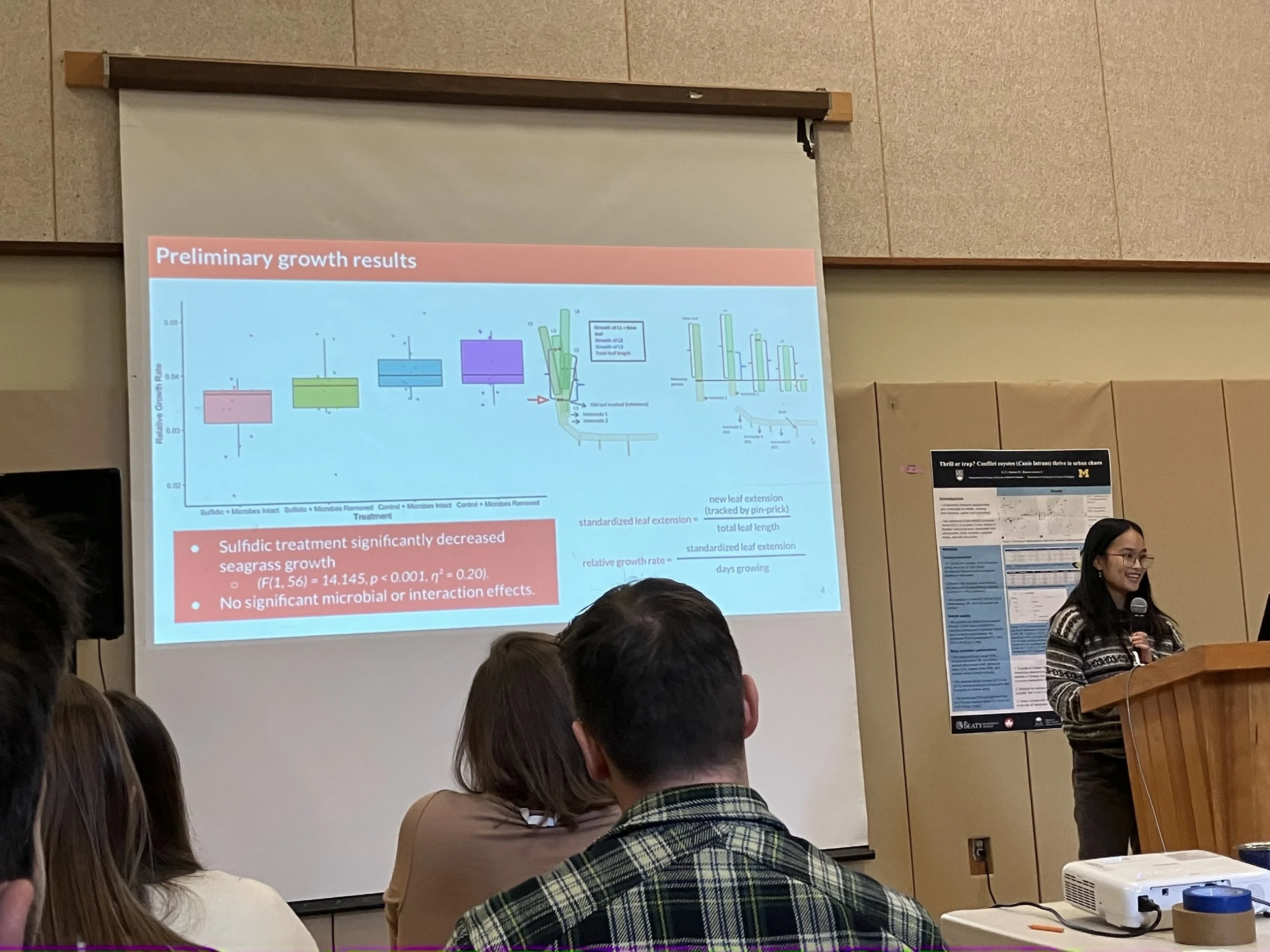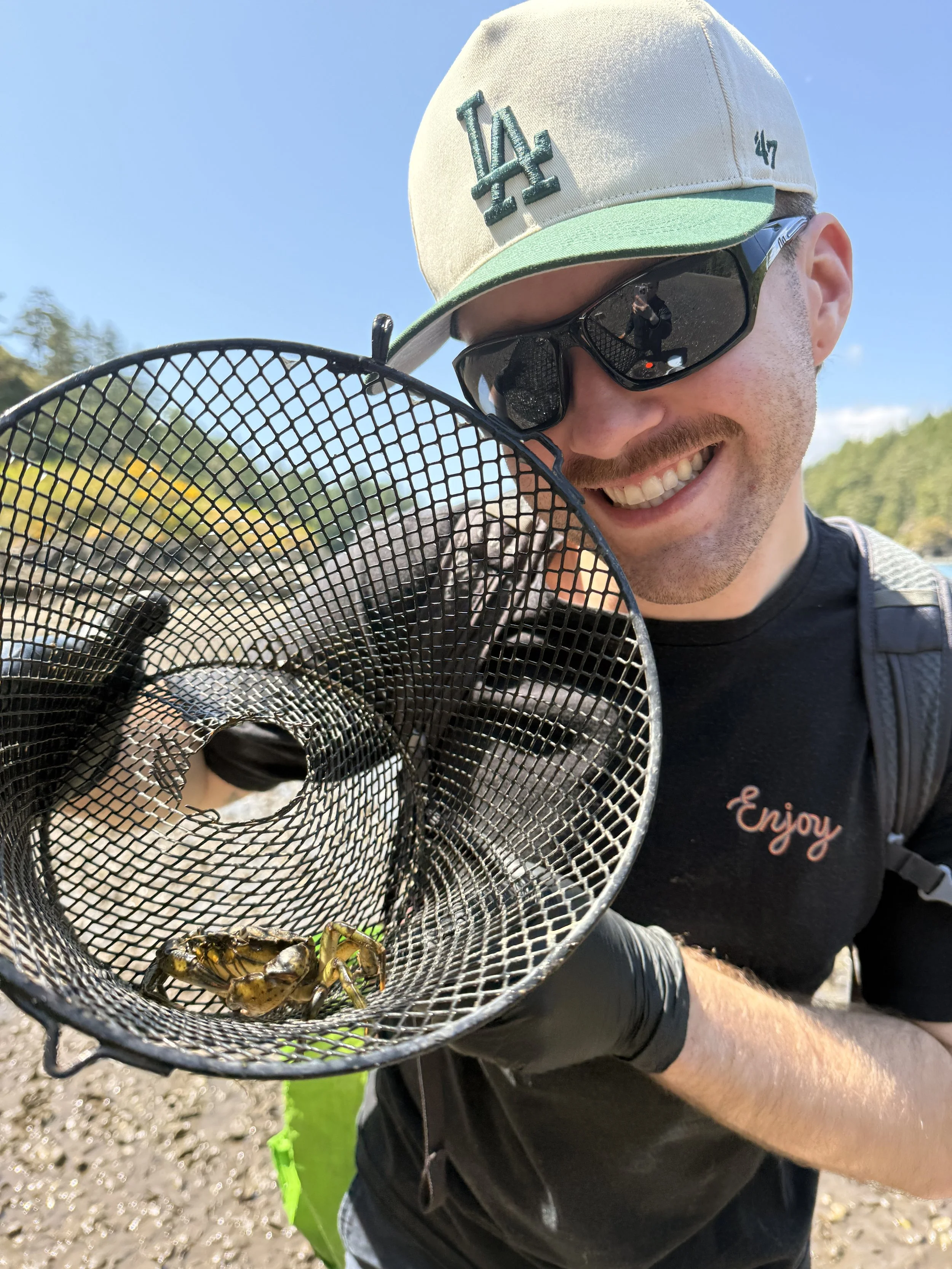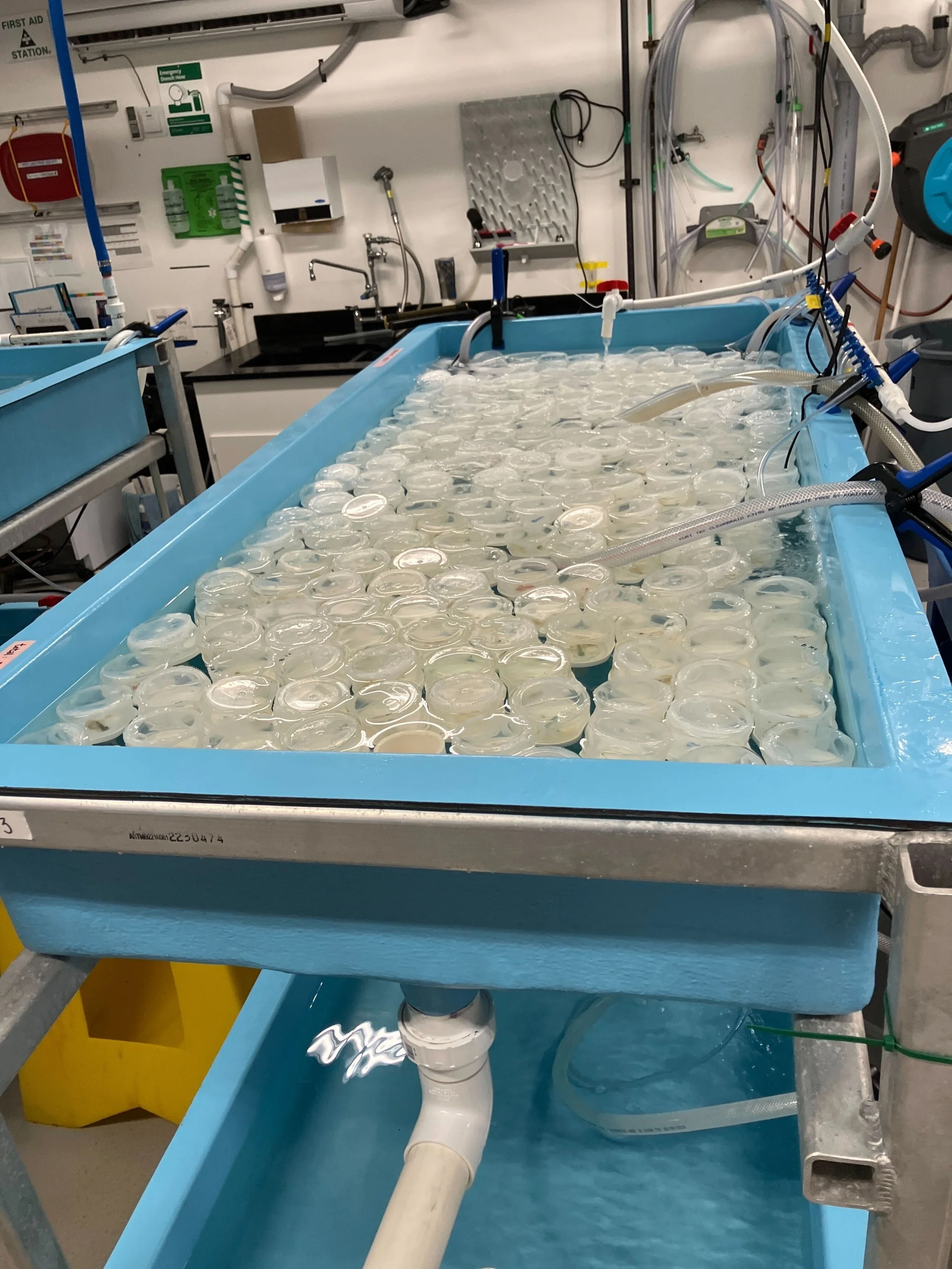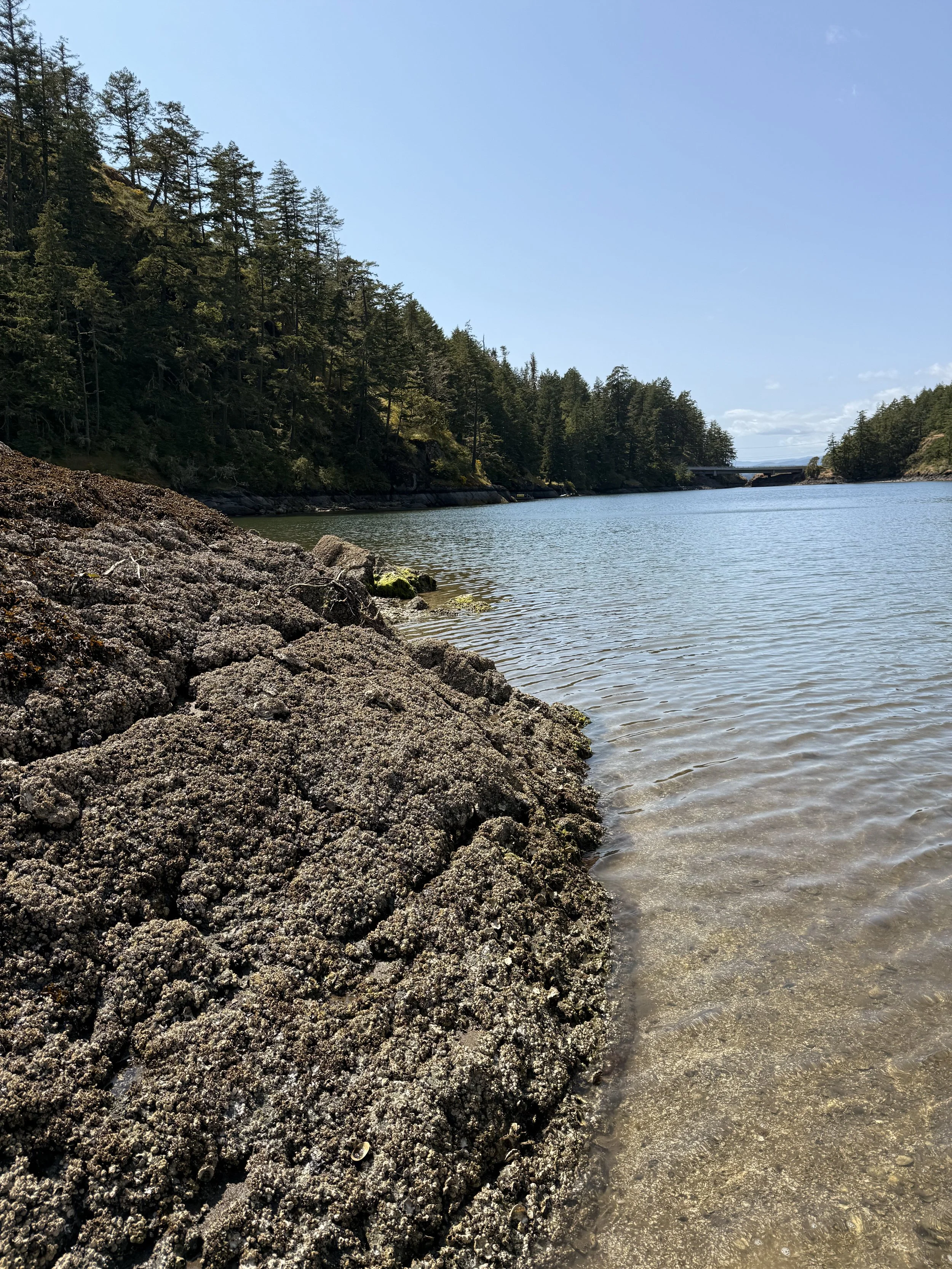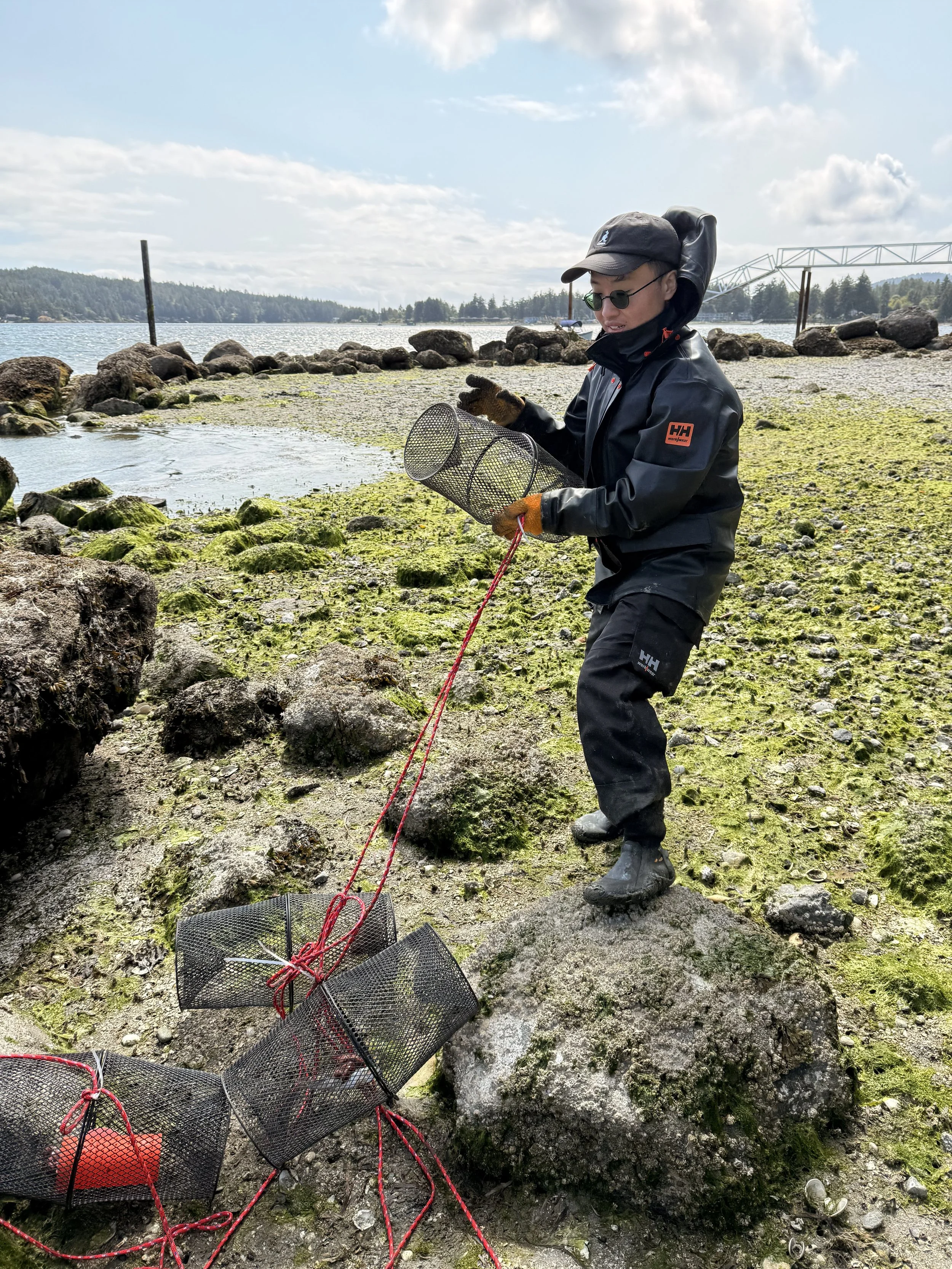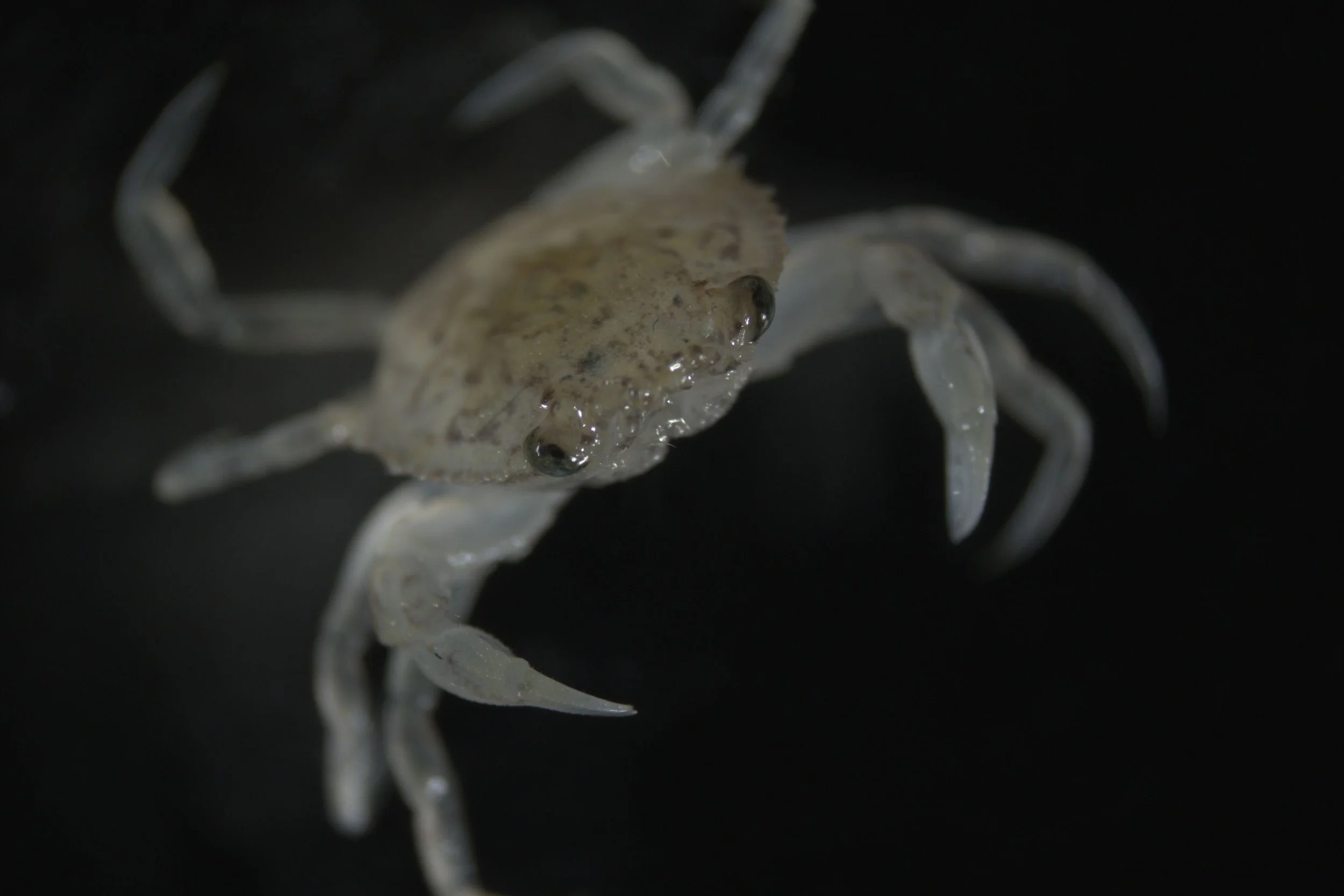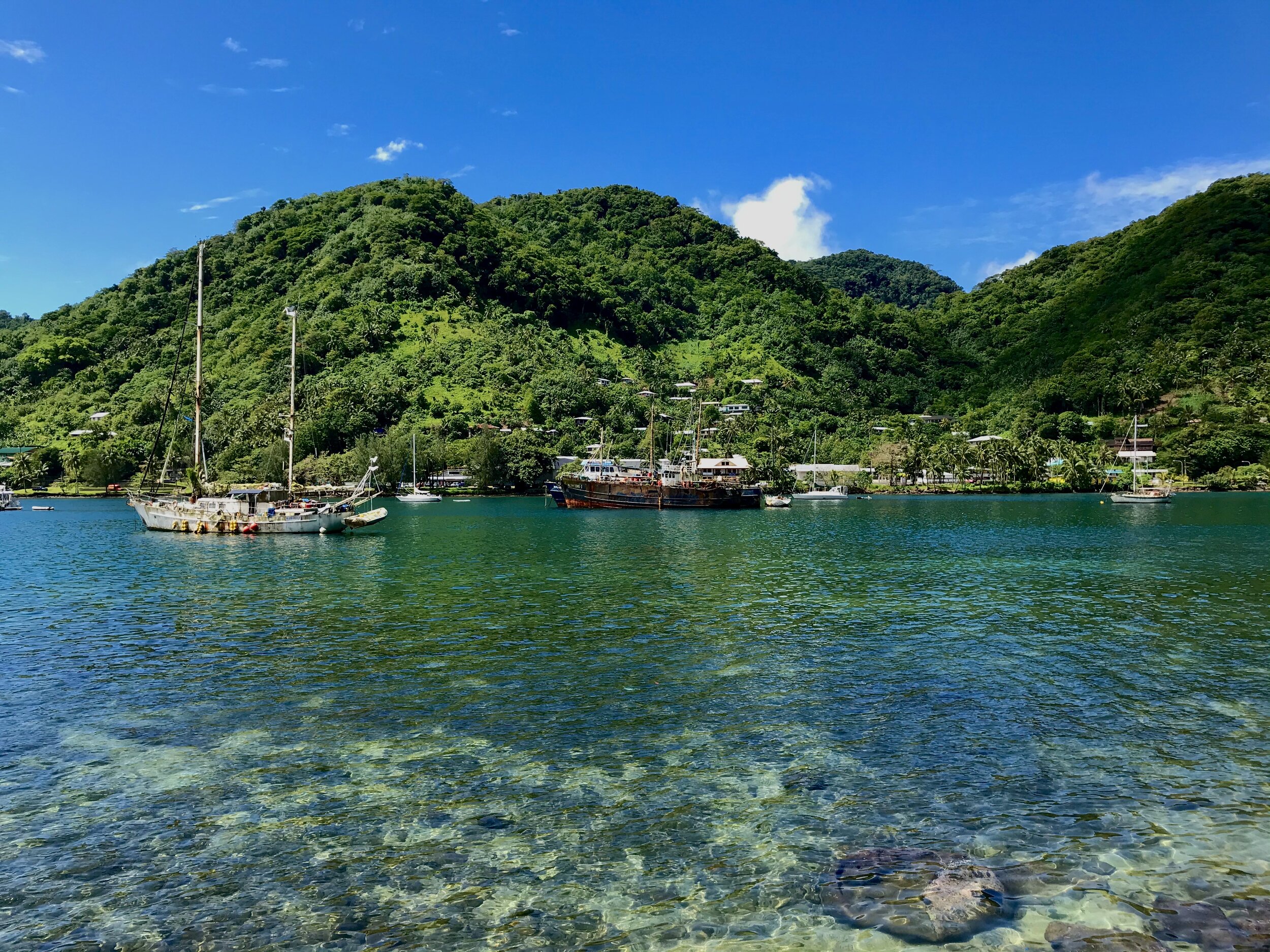
Protecting nature by empowering local communities
Welcome to the Inclusive Conservation Lab!
In our lab, we endeavor to conduct applied community and ecosystem ecology research and practice conservation at various scales while incorporating the values and needs of local communities directly into our work. Our lab is located at the University of British Columbia - Vancouver, with joint appointments in the Forest & Conservation Sciences and Botany Departments, and affiliated status with the Institute of Resources, Environment, and Sustainability as well as the Biodiversity Research Centre.
Lab News
ICL Researchers Present at the 2025 EcoEvo Retreat
This year, the full Inclusive Conservation Lab attended the 2025 EcoEvo Retreat hosted at the Loon Lake Lodge and Retreat Centre in Maple Ridge, BC. Following a busy summer season developing research proposals, conducting field research, and analyzing preliminary data, MJ, Josh, Frederick, and Carl presented their findings in front of an audience of peers from across British Columbia. Congratulations to everyone on their successful presentations!
Stay tuned for additional updates on research outcomes and their implications for coastal conservation throughout the Salish Sea and beyond.
Summer Research Is Underway in the ICL!
Summer is underway and with it, field and laboratory research projects in the ICL! While MJ continues to pilot her seagrass restoration experiment using laboratory mesocosms (see previous post!), Carl and Josh have begun their overlapping research projects. Specifically, Carl is collecting crab megalope to assess the health and fitness impacts of marine heatwaves. He is also supporting Josh’s research collecting both Dungeness and European green crabs to assess how multiple stressors (such as ocean acidification, hypoxia, and predation by invasive species) affects the health and fitness of native crab species.
It’s a busy time in the ICL and we can’t wait to share our findings!
Congratulations to MJ and Josh!
The ICL is incredibly proud to announce that MJ Herrin was awarded the prestigious NSERC Graduate Student Scholarship for Master’s students, and Josh Dyer is currently listed as an alternate for the award. MJ’s proposed research focuses on assessing the impact of sediment properties and soil microbial communities on seagrass health to inform restoration efforts and improve outcomes. Josh’s proposed research aims to determine how cumulative climate-change stressors, such as ocean acidification and hypoxia, affect commercially and ecologically important marine species. Congratulations to you both on your awards and recognition!
MJ collecting seagrass.
Seagrass sample with washer.
Segrass mesocosm tanks.
Light traps for catching crabs.
Crab collections.
Welcoming New Members of the ICL
The ICL will be welcoming 4 new members beginning in the summer of 2024 with the support of the NSERC Discovery grant, the Hakai Institute, and UBC 4-Year Fellowship awards. Each of the new members and their incoming titles are shown below; details of their interests and work can be found on the ICL People page. Welcome, everyone!
Carl Ng (he/him), Postdoctoral Fellow
Frederick Asante (he/him), PhD Student
MJ Herrin (she/her), MSc Student
Joshua Dyer (he/him), MSc Student
New Paper Announcement!
A new study out of the ICL with UBC undergraduate student Sumant Kumble and PI Dr. Alex Moore summarizes the state of the literature on community-based conservation and restoration in coastal wetland ecosystems (Moore and Kumble 2024). They found that community-based approaches to the management of coastal systems predominantly take place in mangrove ecosystems in South and Southeast Asia (Fig. 1) and result in a wide variety of both positive and negative outcomes (Fig. 2).
These data highlight several important needs for future conservation and restoration efforts that are driven by communities, namely: expanding the ecosystem and geographic focus, incorporating additional approaches and outcome metrics, and increasing the post-conservation or restoration monitoring period. The integration of these elements into future efforts will improve coastal management practices for the collective benefit of both people and nature.
Research in the ICL
Research in the ICL focuses on broad ecological questions with conservation and restoration applications. These include addressing how the ecological community and food webs influence ecosystem functions , identifying the various contexts that influence these relationships, and determining the relative importance of biotic and abiotic factors in maintaining ecosystem health.
Across all of this work, recognizing and incorporating local cultural values, uses, and traditional ecological knowledge and land stewardship practices is crucial for inclusive, equitable, and sustainable research.
For more information, see the “Research” tab above.
Diversity, Equity, Inclusion & Justice
Our lab is committed to fostering an inclusive, equitable, and just community that values all aspects of diversity, including but not limited to: race, ethnicity, gender identity, sexual orientation, religion, age, socioeconomic status, immigration status, and disability designation. We seek to recruit, support, and retain members from diverse backgrounds and groups that have historically been marginalized in STEM and the academe at large.As a lab, we are committed to creating a learning and working environment where individuals feel supported and invested in the lab mission. Toward this end, we believe that it’s not enough to not be racist, and we commit ourselves to act against racism by acknowledging personal privileges, confronting acts of racial discrimination, and working to change personal implicit biases. These values are not only part of our lab culture, but are also deeply embedded in the research that we do. This work is challenging, but essential, and as a lab we will work together to develop practices and policies that address individual and collective needs. 

